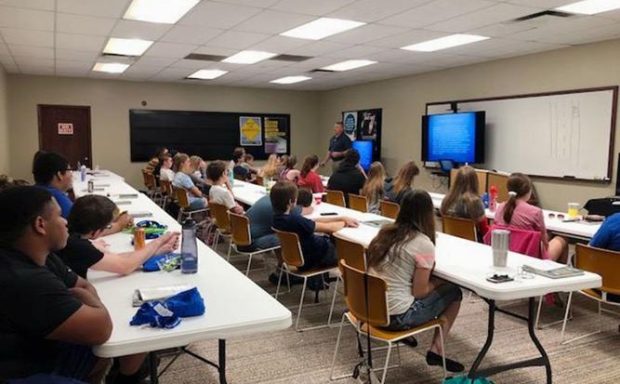Introduction
In the state of Illinois, many young individuals eagerly await their 16th birthday, which is often associated with the opportunity to obtain their driver’s permit. However, a common question that arises is whether it’s possible to secure a permit at the age of 16 without enrolling in a formal driver’s education program. In this article, we will delve into the requirements and options available for young Illinois residents who are eager to hit the road legally.
Understanding the Basics
Before we explore the specific regulations in Illinois, it’s crucial to grasp some fundamental concepts related to obtaining a driver’s permit and the role of driver’s education.
H1: Driver’s Permit – What Is It?
A driver’s permit, often referred to as a learner’s permit, is a preliminary license that allows individuals to practice driving under certain conditions. It’s an essential step towards obtaining a full-fledged driver’s license.
H1: The Role of Driver’s Education
Driver’s education programs are designed to provide aspiring drivers with the necessary knowledge and skills to safely operate a motor vehicle. They typically consist of both classroom instruction and practical driving lessons.
Illinois Permit Requirements
Illinois has specific regulations governing the issuance of driver’s permits, especially for young drivers. Let’s delve into these requirements and whether there’s an option to obtain a permit at 16 without driver’s ed.
H2: Age Requirements
In Illinois, the minimum age to apply for a driver’s permit is 15 years old. However, there is a notable caveat.
H2: The Driver’s Ed Requirement
Illinois law mandates that individuals who are 15 to 17 years old must complete an approved driver’s education program before they can apply for a driver’s permit. This requirement is a crucial part of the process.
H2: A Special Exception
While driver’s education is typically a prerequisite, there is a special exception for those who have turned 18. If you are 18 or older, you are not required to complete driver’s ed to obtain a permit. This means you can secure your permit at 16 without driver’s ed, but only if you wait until your 18th birthday.
Benefits of Driver’s Education
Even though Illinois allows for an exception for those aged 18 and older, enrolling in a driver’s education program can be highly beneficial.
H3: Enhanced Safety
Driver’s ed programs are designed to teach young drivers the rules of the road and instill safe driving practices. This knowledge can help reduce accidents and save lives.
H3: Insurance Discounts
Many insurance companies offer discounts to individuals who have completed a driver’s education course. This can lead to significant cost savings on your auto insurance premiums.
Conclusion
In conclusion, while it is possible to get your permit at 16 in Illinois without driver’s ed, there is a catch. The exception only applies when you turn 18, and until then, completing an approved driver’s education program is a mandatory step in the process. We strongly recommend that young drivers take advantage of these programs to ensure their safety and the safety of others on the road.
H4: Frequently Asked Questions
Now, let’s address some common questions regarding obtaining a driver’s permit in Illinois:
- Is driver’s ed mandatory for everyone in Illinois?
- No, it’s mandatory only for individuals aged 15 to 17.
- Can I start driver’s ed at 16 and then get my permit at 18?
- No, you can’t circumvent the age requirement. You must be 18 to obtain a permit without driver’s ed.
- Are online driver’s ed courses acceptable in Illinois?
- Yes, many approved programs offer online driver’s ed courses.
- How long is a driver’s permit valid in Illinois?
- A driver’s permit in Illinois is valid for two years.
- What are the penalties for driving without a permit or a valid license in Illinois?
Driving without a permit or a valid license in Illinois can result in fines, suspension of driving privileges, and legal consequences.

